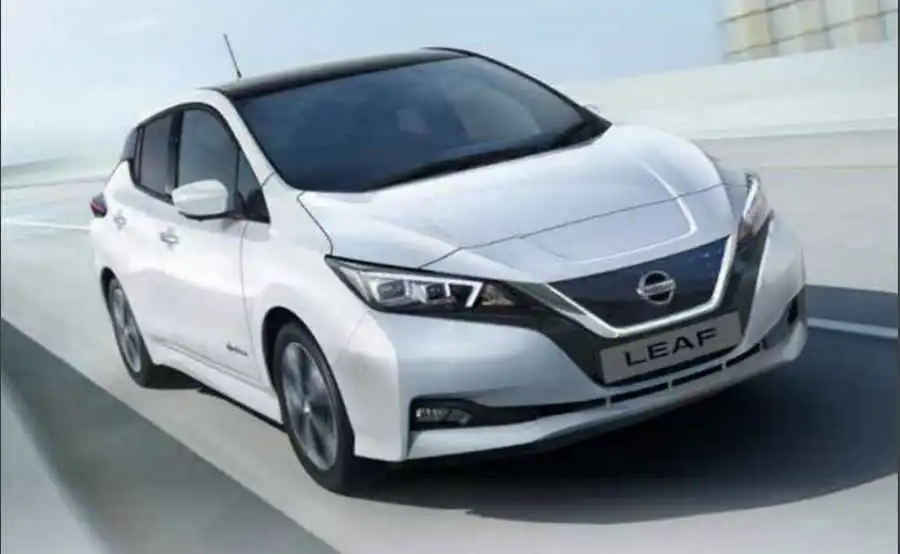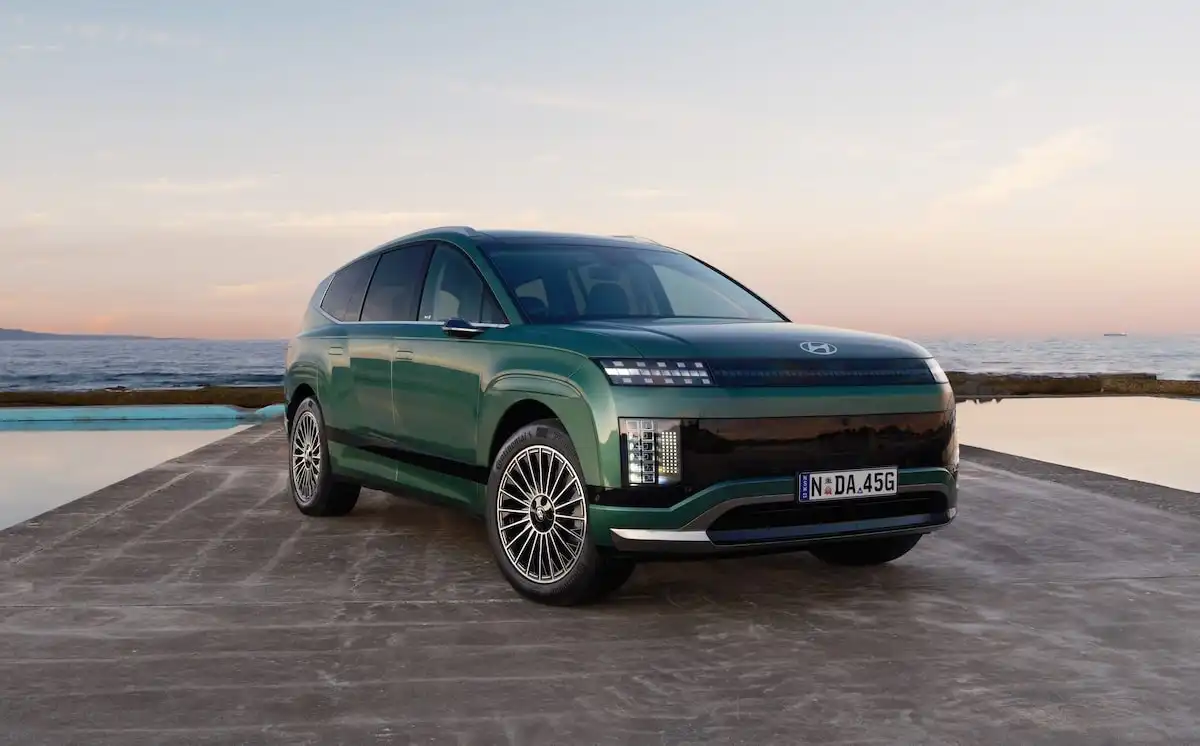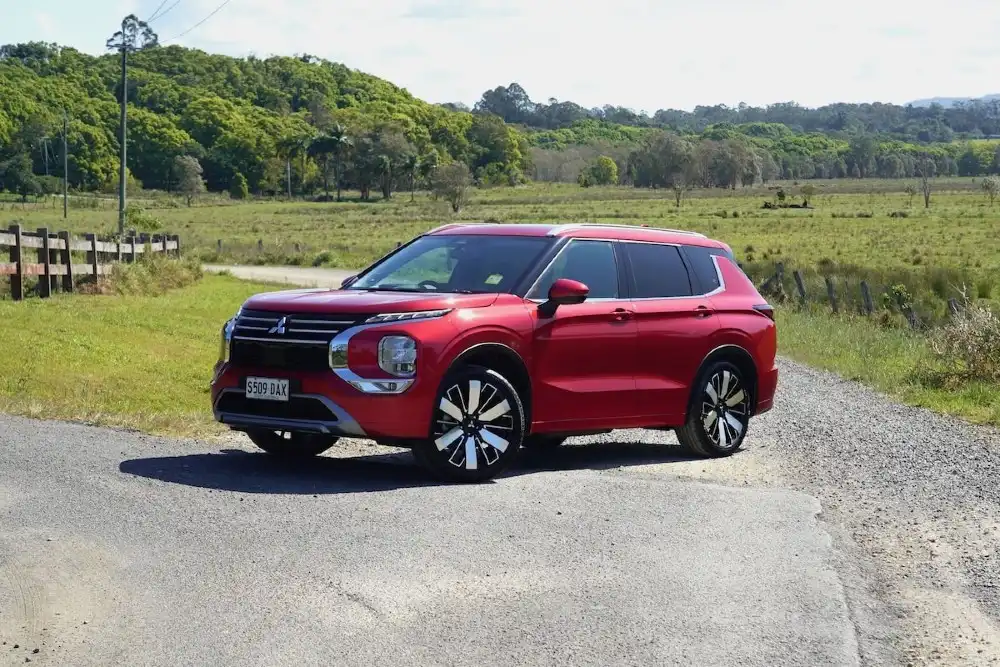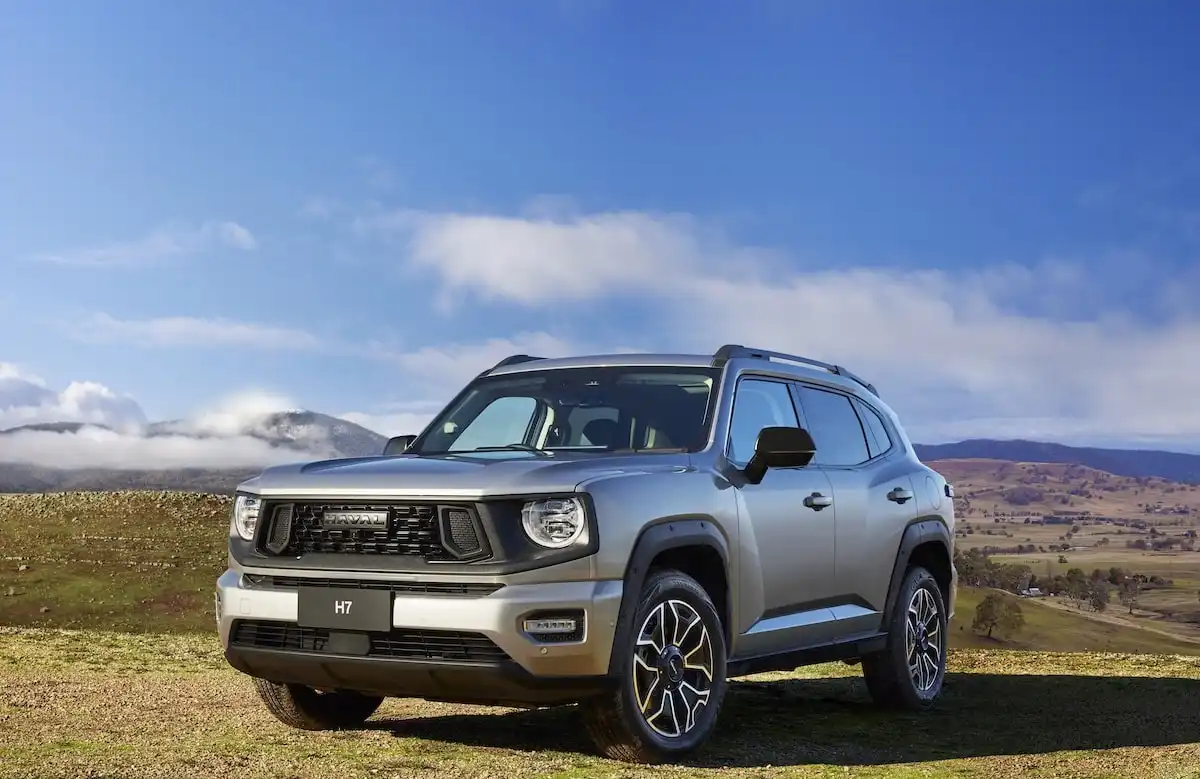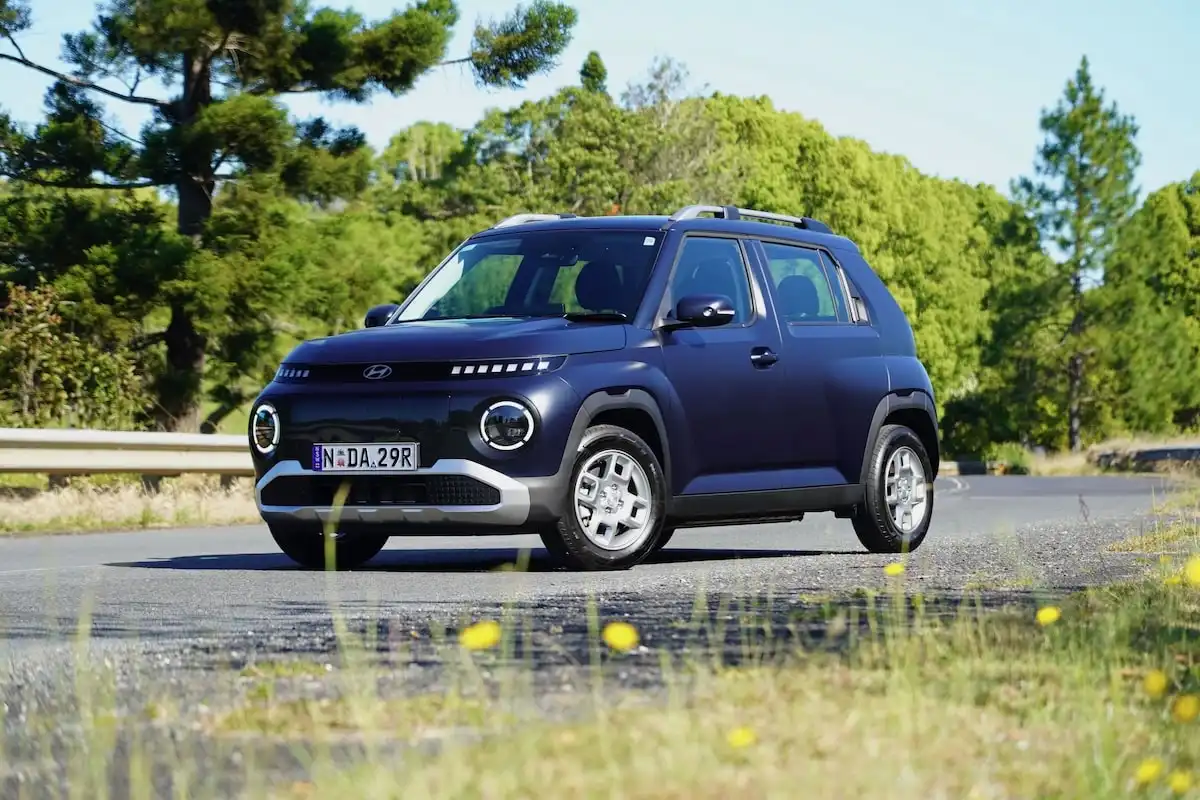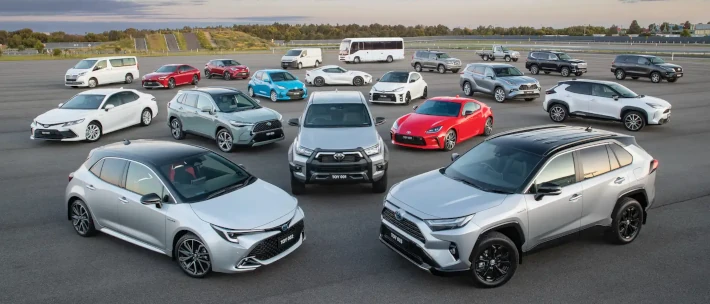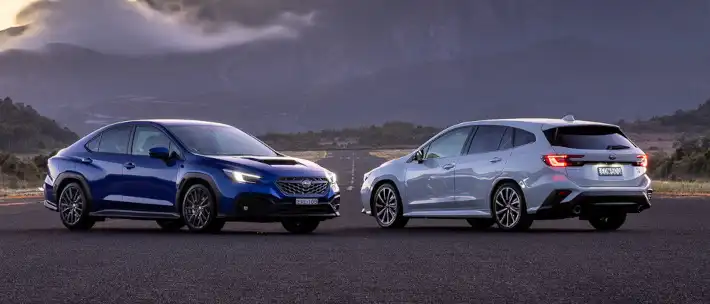The Nissan LEAF first hit dealers back in 2010, and won a number of awards, including European Car of the Year in 2011. It was so popular, in fact, that it was the world’s best-selling electric car for nine-years until Tesla usurped the throne with its Model 3.
Recently, Nissan confirmed the arrival of the LEAF e+, which may prove to be a game-changer for the company. Fitted with a larger battery pack, the e+ packs more power, and more importantly, a longer range figure, which means the new LEAF e+ may prove to be the most important car within Nissan’s lineup.
Since its introduction, though, there have been a number of all-electric vehicles from competitors - so does the LEAF still cut it in terms of a modern, sustainable hatch? Keeping in mind that it’s one of the cheapest all-electric cars currently available in Australia, how does the LEAF stack up as a value proposition?
Starting Price: $49,990
OnlineAuto Savings: $5,884
Nissan Leaf Specifications
| Model Date | 2021 |
| Make | NISSAN |
| Model | LEAF |
| Series | ZE1 MY21 |
| Variant | - |
| Body | 5D HATCHBACK |
| Fuel type | ELECTRIC |
| Transmission | 1 SP AUTOMATIC |
| Drive | FWD |
| Engine | ELEC |
| Engine capacity | 0 |
| Engine configuration | NOT APPLICABLE / 0 valves |
| Engine RPM | 3283 / 0 |
| Cylinders | - |
| Torque | 320 |
| KW | 110 |
| Fuel tank size | 0.0 |
| Fuel usage specs | 0.0 / 0.0 |
| CO2 | 0 |
| ANCAP security rating | 5 |
For more details and other variants, check Nissan Leaf car page.
Need help narrowing down your choices?
Get in touch with one of our Car Buying Specialists today
Request a quoteHow Much Does It Cost?
The Nissan LEAF lineup kicks off at $49,990 (plus on-road costs) for the base model, while the range-topping LEAF e+ is priced from $60,490. In terms of running costs, a full-charge at around $0.25 per kWh will cost you around $10 to fill for the base model.
How Much Can OnlineAuto Save You?
Using auto finance service of OnlineAuto.com.au, you could save by getting one of our car experts to assist you in finding the best value model for you.
What Features Does the Nissan LEAF Have?
Both the base model 40kWh and long-range 62kWh Nissan LEAF variants come packaged with 17-inch alloys, heated black leather seats, a heated steering wheel, automatic LED headlights with LED daytime running lights, 7-inch display for the driver and 8-inch touchscreen multimedia unit with voice recognition, Apple CarPlay and Android Auto, digital radio, satellite navigation, premium seven-speaker BOSE audio system, intelligent cruise control, automatic wipers, keyless entry and start, as well as an e-pedal for one pedal driving and a host of safety equipment that we’ll cover later in the review.
Range Features:
- 17-inch alloys
- 2 x displays (7-inch driver, 8-inch multimedia unit)
- Seven speaker BOSE audio system
- Automatic LED headlights
- Intelligent Cruise Control System
Nissan LEAF Colours
| Ivory Pearl | Magnetic Red |
| Pearl Black | Platinum |
| Gun Metallic | Arctic White |
| Vivid Blue |
Is it Comfortable to Drive?
The Nissan LEAF is an extremely comfortable and capable urban runaround, and proves extremely easy to drive thanks to its electric motor. The base 40kWh offers 110kW and 320Nm of torque, while the e+ packs a 160kW and 340Nm punch. The most immediate benefit of an electric motor is the ease in which you can pick up speed in any given environment, and in this regard, the LEAF is extremely capable both in town, and on the highway.
While picking up speed, the electric motor is so quiet that you’re likely going to hear more road noise than anything mechanical, which becomes extremely relaxing for the return work commute. Combined with Nissan’s addition of an e-pedal, which automatically hits the brakes - and regathers energy lost while stopping - means you can pilot your LEAF home with just one foot; otherwise known as single-pedal driving.
The battery pack does add some weight, particularly in the e+, but the LEAF does an admirable job of keeping this weight under control, and it remains close to effortless when it comes to its driving dynamics.
Is it Practical and Spacious?
In the front of the cabin, there is the typical Japanese approach to practicality, with a host of door bins, cubby holes on the centre console and a healthy amount of space in the front of the cabin. The rear of the cabin, however, is significantly more cramped due to its proportions. Legroom for even the tallest of rear occupants is not a problem, but headroom falls short for tall adults, and means the LEAF is somewhat limited in terms of space for longer journeys.This, though, is made up by the generous amount of cargo space in the rear of the LEAF, which can accommodate up to 405L, and up to 1,176L with the rear-seats folded down.
Is it Safe?
The Nissan LEAF lineup is extremely safe, being awarded ANCAP’s maximum Five Star Rating. Both the 40kWh and 62kWh variants also come packaged with a huge amount of Nissan’s ‘Intelligent’ safety technology as standard, which includes front and rear parking sensors, ride control, adaptive cruise control with autonomous emergency braking, around-view monitor, trace control, driver alerts, forward-collision warning, lane intervention with departure warning, blind-spot monitoring and rear-cross traffic alerts.
All up, the LEAF comes packaged with a comprehensive list of safety technologies as standard.
How Much Range Can I Expect From the Nissan LEAF?
Depending on which battery capacity you’re looking at, range figures sit anywhere between 270km for the 40kWh model and 385km for the range-topping 62kWh LEAF e+. Interestingly, Nissan’s drive monitoring system adapts to your driving style, and gives you a tailored range figure that is more suitable to how throttle-heavy you are. The Nissan LEAF is most efficient when driving continuously just under the speed limit; speeds of over 120km/h can reduce the overall power consumption.
How Long Does the Nissan LEAF Take to Charge?
Charging a Nissan LEAF at home using the standard 6.6kW on-board charger connected to a 32-amp wall box will take 7.5 hours for the base model, and more than 11 hours in the e+. These figures can be reduced to around one-hour for the base model and 90-minutes for the e+ with the use of a 50kW fast-charger, while the e+ can be fast-charged with a 100kW charging point from 20% to 80% in just 45-minutes.
Interestingly, the e+ is one of the only cars in Australia that is capable of bi-directional charging, meaning it can return electricity to a household.
Our Verdict: Is the Nissan LEAF Worth it?
This is where things get tricky. In isolation, the Nissan LEAF is an extremely capable vehicle that will likely prove more than enough cars for most people. It’s a car that rose to prominence as an affordable entry-point into the electric vehicle market, and won international awards for a number of good reasons. The problem, though, if the price continues to move north, the LEAF will come awfully close to the starting price of something like a Tesla Model 3.
For now, though, the Nissan LEAF remains the clear leader of an admittedly small group of cars, but has, and will continue to play an important role in the automotive world. If you’re interested in the Nissan LEAF, get in touch to get your free quote and see how much OnlineAuto can save you on your next car, or call us on 1300 719 925
Five Specs You Need to Know
- 40kWH battery pack in base model, 62kWh in e+
- 270km range for base, 385km for e+
- 20-80% charge in 45 minutes (with e+ and 100kW fast-charger)
- 110kW of power for base model, 160kW for e+
- 320Nm of torque for base model, 370Nm for e+
Pros
- Smooth, silent engine
- Zero emissions driving
- Impressive range figures in e+
Cons
- Range suffers at high speed
- Limited rear headroom
- Dated infotainment system
Nissan LEAF Competition
Nissan LEAF |
VS |
Audi e-tron |
| Jaguar I-Pace | ||
| Kia e-Niro | ||
| Hyundai Kona Electric | ||
| Tesla Model 3 |
